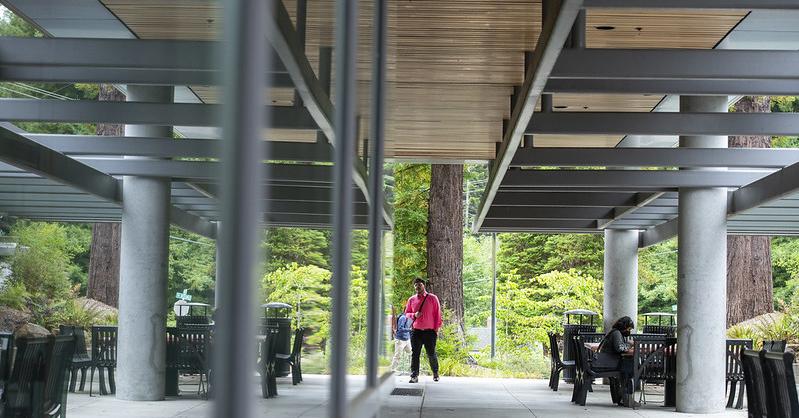School Psychology
School Psychology at Cal Poly Humboldt
We are an in-person program.
The School Psychology Program at Cal Poly Humboldt has been an approved graduate program within the Department of Psychology for the past 50 years. The program is designed and administered by the Psychology Department faculty, in collaboration with Humboldt's School of Education, utilizing guidelines set forth by the California Commission on Teacher Credentialing. The current program is an 85-semester unit sequence consisting of coursework, field experience and research training that requires a minimum of three years to complete. The first two years combine coursework and supervised fieldwork, while the third year consists of a supervised internship.
The program combines a master’s degree in School Psychology (M.A.) with a credential authorizing service in California as a school psychologist. The program is accredited by the California Commission on Teacher Credentialing (CCTC).
Role of the School Psychologist
As per the National Association of School Psychologists (NASP), school psychologists provide direct support and interventions to students, consult with teachers, families, and other school-employed mental health professionals (i.e., school counselors, school social workers) to improve support strategies, work with school administrators to improve school-wide practices and policies, and collaborate with community providers to coordinate needed services. They help schools successfully:
Improve Academic Achievement
- Promote student motivation and engagement
- Conduct psychological and academic assessments
- Individualize instruction and interventions
- Manage student and classroom behavior
- Monitor student progress
- Collect and interpret student and classroom data
- Reduce inappropriate referrals to special education
Promote Positive Behavior and Mental Health
- Improve students communication and social skills
- Assess student emotional and behavioral needs
- Provide individual and group counseling
- Promote problem solving, anger management and conflict resolution
- Reinforce positive coping skills and resilience
- Promote positive peer relationships and social problem solving
- Make referrals to and help coordinate community services provided in schools
Support Diverse Learners
- Assess diverse learning needs
- Provide culturally responsive services to students and families from diverse backgrounds
- Plan appropriate Individualized Education Programs for students with disabilities
- Modify and adapt curricula and instruction
- Adjust classroom facilities and routines to improve student engagement and learning
- Monitor and effectively communicate with parents about student progress
Create Safe, Positive School Climates
- Prevent bullying and other forms of violence
- Support social-emotional learning
- Assess school climate and improve school connectedness
- Implement and promote positive discipline and restorative justice
- Implement school-wide positive behavioral supports
- Identify at risk students and school vulnerabilities
- Provide crisis prevention and intervention services
Strengthen Family-School Partnerships
- Help families understand their child's learning and mental health needs
- Assist in navigating special education processes
- Connect families with community service providers when necessary
- Help effectively engage families with teachers and other school staff
- Enhance staff understanding and responsiveness to diverse cultures and backgrounds
- Help students transition between school and community learning environments, such as residential treatment or juvenile justice programs
Improve School-Wide Assessment and Accountability Monitor individual student progress in academics and behavior
- Generate and interpret useful student and school outcome data
- Collect and analyze data on risk and protective factors related to student outcomes
- Plan services at the district, building, classroom, and individual levels
According to the California Department of Education Code 49424, a school psychologist is a credentialed professional whose primary objective is the application of scientific principles of learning and behavior to ameliorate school-related problems and to facilitate the learning and development of children in the public schools of California.
To accomplish this objective the school psychologist provides services to children, teachers, parents, community agencies, and the school system itself. These services include:
- Consultation with school administrators concerning appropriate learning objectives for children, planning of developmental and remedial programs for pupils in regular and special school programs, and the development of educational experimentation and evaluation.
- Consultation with teachers in the development and implementation of classroom methods and procedures designed to facilitate pupil learning and to overcome learning and behavior disorders.
- Consultation with parents to assist in understanding the learning and adjustment processes of children.
- Consultation with community agencies, such as probation departments, mental health clinics, and welfare departments, concerning pupils who are being served by such community agencies.
- Consultation and supervision of pupil personnel services workers.
- Psychoeducational assessment and diagnosis of specific learning and behavioral disabilities, including, but not limited to, case study evaluation, recommendations for remediation or placement, and periodic reevaluation of such children.
- Psychological counseling of and other therapeutic techniques with children and parents, including parent education.
Check out the National Association for School Psychologists (NASP) for more information on the role of the School Psychologist at www.nasponline.org.
How to Apply
All applicants apply to the university through CalState Apply. Applications open October 1st. The deadline to apply is February 1st (All applications received by this date will receive full consideration). Initial admission decisions are made by the end of March. Within the CalState Apply system, you will provide a Statement of Intent and send at least two letter of reference requests.
Applicants must have an undergraduate degree in psychology or a related discipline (ie. child development, education, social work). Satisfying prerequisite requirements does not supplant the requirement for a relevant undergraduate degree. Tests and measurements, a prerequisite requirement, is completed during the first semester following admission, if needed.
Contact Us
Faculty Program Coordinator
Dr. Francis J. DeMatteo, NCSP; Professor
francis.dematteo@humboldt.edu


